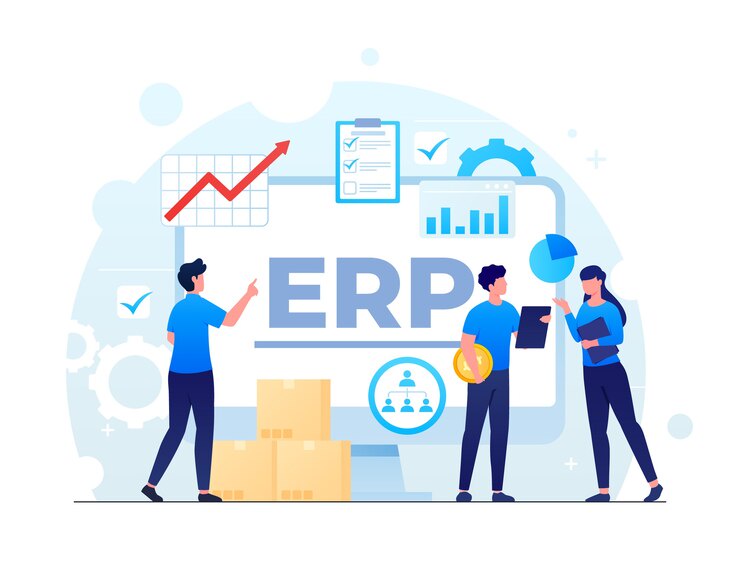Introduction:
In the ever-evolving landscape of enterprise resource planning (ERP) systems, the role of quality assurance (QA) has become increasingly pivotal. As erp testing services provider strive to stay competitive and agile in a fast-paced market environment, ERP modernization projects have emerged as essential endeavours. These projects not only aim to upgrade existing ERP systems but also to leverage emerging technologies to drive efficiency, innovation, and growth. In this article, we delve into the evolving role of QA in ERP modernization projects, exploring its significance, challenges, and best practices.
• Understanding the Shift:
Traditionally, QA in ERP testing service projects focused primarily on ensuring the stability and reliability of the system through rigorous testing processes. However, with the advent of digital transformation and the integration of advanced technologies like artificial intelligence (AI), machine learning (ML), and Internet of Things (IoT) in ERP systems, the role of QA has expanded significantly.
• Significance of QA in ERP Modernization:
1. Ensuring Compatibility: Modernizing ERP systems often involves integrating new modules, functionalities, or third-party applications. QA plays a crucial role in ensuring seamless compatibility and interoperability across different components.
2. User Experience Enhancement: In today's user-centric digital environment, QA extends beyond functional testing to encompass user experience (UX) testing. It ensures that the modernized ERP system delivers an intuitive and engaging interface that enhances user satisfaction and productivity.
3. Data Integrity and Security: With the increasing volume and complexity of data processed by ERP systems, QA becomes paramount in safeguarding data integrity and ensuring robust security measures to protect sensitive information from cyber threats and breaches.
4. Performance Optimization: QA teams are tasked with benchmarking the performance of modernized ERP systems under various conditions to identify potential bottlenecks and optimize system performance for enhanced speed, scalability, and reliability.
• Key Challenges:
Despite its significance, QA in ERP modernization projects faces several challenges, including:
1. Complexity: Modern ERP systems are highly complex, often comprising diverse modules, integrations, and customizations. QA teams must navigate this complexity to ensure comprehensive test coverage.
2. Resource Constraints: Limited resources, including time, budget, and skilled personnel, pose significant challenges to QA efforts, leading to compromises in testing thoroughness and effectiveness.
3. Agility and Flexibility: Agile methodologies have become prevalent in ERP modernization projects, necessitating QA processes that are agile, flexible, and adaptable to frequent changes and iterations.
4. Integration Testing: Integrating new technologies and third-party applications introduces complexities in integration testing, requiring QA teams to collaborate closely with development and integration teams to ensure seamless interoperability.
• Best Practices:
To address these challenges and fulfil its evolving role effectively, QA in ERP modernization projects should adhere to the following best practices:
1. Early Involvement: QA teams should be involved early in the project lifecycle to collaborate closely with stakeholders, understand requirements, and establish a comprehensive testing strategy aligned with business objectives.
2. Automation: Leveraging test automation frameworks and tools can significantly accelerate testing processes, improve test coverage, and enhance overall efficiency, especially for repetitive tasks and regression testing.
3. Continuous Testing: Adopting a continuous testing approach enables QA teams to integrate testing seamlessly into the DevOps pipeline, facilitating early defect detection, rapid feedback, and quicker time-to-market.
4. Risk-Based Testing: Prioritizing testing efforts based on risk assessment helps QA teams allocate resources effectively, focusing on critical functionalities, integrations, and areas prone to failure.
5. Collaboration and Communication: Effective collaboration and communication among QA, development, and business teams foster transparency, shared understanding, and alignment of expectations, leading to smoother project execution and higher-quality outcomes.
Conclusion:
As ERP systems continue to evolve in response to technological advancements and changing business requirements, the role of QA in ensuring the success of ERP testing services modernization projects becomes increasingly critical. By embracing new methodologies, technologies, and best practices, QA teams can navigate the challenges posed by modernization initiatives and contribute significantly to the delivery of robust, scalable, and future-ready ERP solutions that drive organizational growth and innovation.


No comments yet